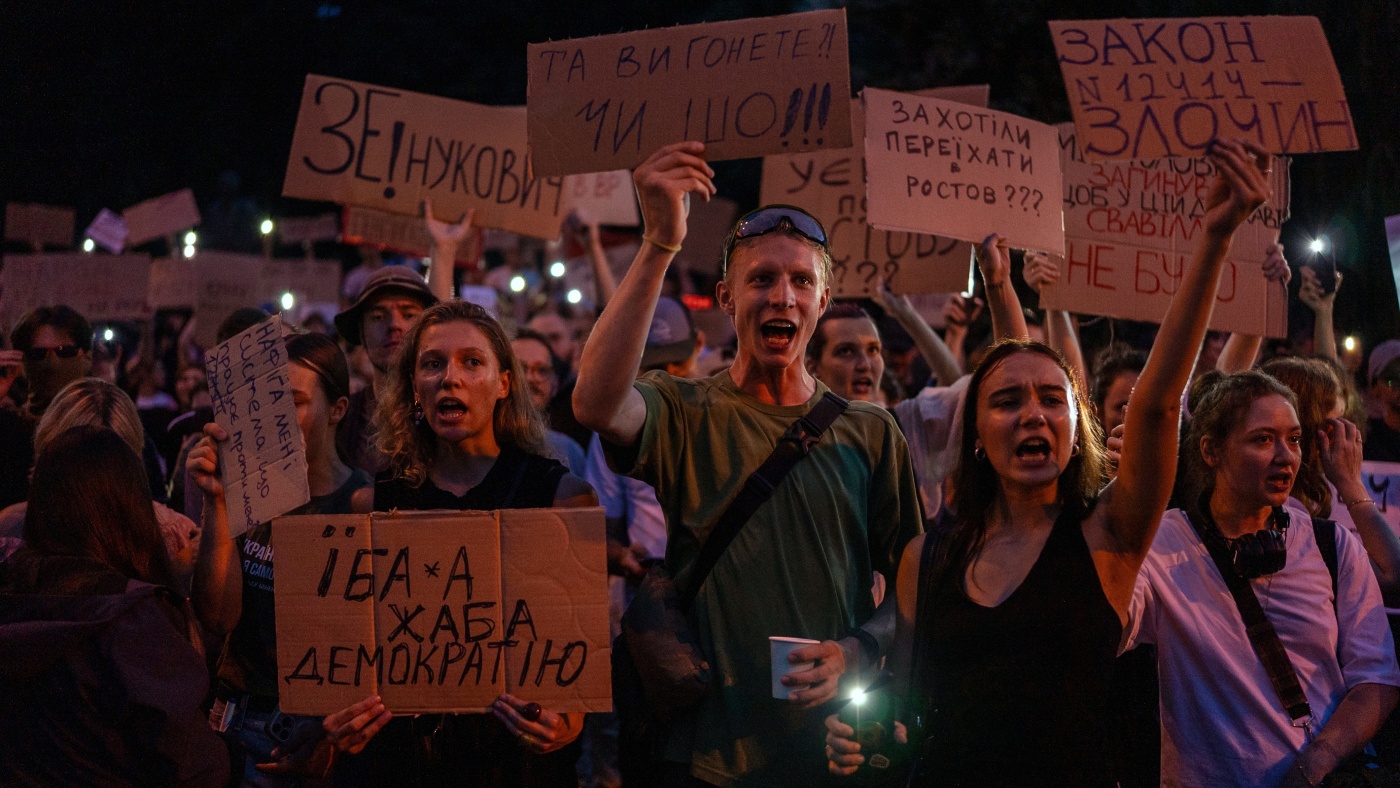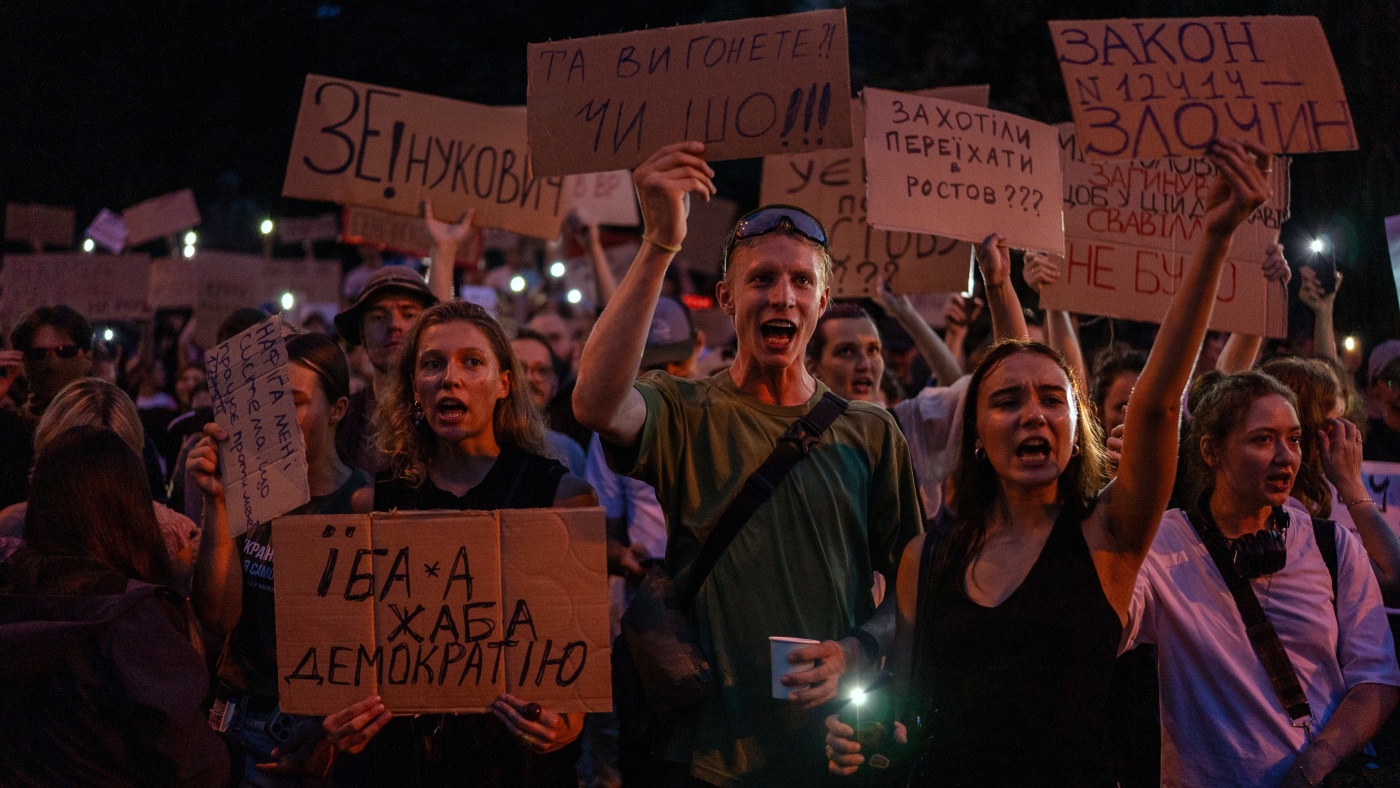The Storm Over Ukraine’s Anti-Corruption Reforms
Introduction: A Leader Tested
Volodymyr Zelenskyy, the charismatic leader who captured global admiration for his steadfast leadership during Ukraine’s war with Russia, now faces an unexpected challenge from within his own country. The passage of a controversial bill perceived to weaken Ukraine’s anti-corruption agencies has sparked widespread protests and drawn sharp criticism from both domestic activists and international allies. This move, framed as an effort to streamline anti-corruption efforts, is widely seen as a dangerous retreat from crucial reforms that could jeopardize Ukraine’s future and its aspirations for European Union membership. The timing of this controversy is particularly fraught, as Ukraine continues to navigate the complexities of war and seeks to maintain international support.
The Controversial Bill: A Closer Look
At the heart of the controversy is a bill passed by Ukraine’s parliament and signed into law by President Zelenskyy. This legislation targets two key anti-corruption bodies, introducing changes to the selection process for leadership positions. Critics argue that these changes could significantly undermine the independence of these agencies, making them more vulnerable to political influence. The core concern is that the bill could allow President Zelenskyy’s circle to exert greater control over investigations, effectively weakening the watchdogs’ ability to operate without fear of reprisal.
The anti-corruption agencies in question were established in the wake of the 2013 pro-democracy protests, born from a deep-seated desire to cleanse the country of endemic corruption. To many Ukrainians, these agencies represent a tangible step towards a more just and equitable society. The bill’s passage has therefore been met with widespread dismay, as it is seen as a betrayal of the promises of transparency and accountability that Zelenskyy made when he came to power.
Public Outcry and Protests
The signing of the bill has triggered a wave of protests across Ukraine. Thousands of citizens have taken to the streets, chanting slogans and holding banners that express their discontent. These protests are not merely localized events; they represent a groundswell of public opposition to what is seen as a betrayal of the promises of reform. Activists, civil society organizations, and even some members of parliament have voiced strong condemnation of the law, arguing that it represents a significant setback to Ukraine’s reform efforts and could erode public trust in the government.
The timing of the bill is particularly sensitive, given the ongoing war with Russia. Maintaining public trust and unity is paramount in such a challenging context, and this controversy risks fracturing that critical foundation. The protests highlight a palpable sense of anger and disillusionment simmering beneath the surface, as many Ukrainians feel that their leader has abandoned the very principles that brought him to power.
Zelenskyy’s Defense and Criticism
In response to the mounting criticism, President Zelenskyy has attempted to defend his decision. He argues that the changes are necessary to streamline the anti-corruption process and ensure that these agencies operate effectively. He suggests that corruption cases have been taking too long to investigate and that the agencies themselves may have become compromised. He further claims that the reforms are intended to ensure that the anti-corruption infrastructure operates free from Russian influence.
However, this justification has failed to quell the criticism. Many view Zelenskyy’s arguments as disingenuous, pointing out that the bill was rushed through parliament with little public consultation and that the changes it introduces are likely to have the opposite of the intended effect. Critics argue that rather than making the agencies more efficient, the bill will make them more vulnerable to political interference, potentially stalling or derailing investigations into high-level corruption.
International Repercussions
The controversy surrounding the anti-corruption bill extends beyond Ukraine’s borders, raising concerns among its Western allies. These nations have invested significant resources in supporting Ukraine’s reform efforts, including the establishment and strengthening of anti-corruption institutions. The new law is seen by many as a direct threat to these efforts, potentially jeopardizing future financial and political support.
The European Union, in particular, has been vocal in its criticism of the bill. Ukraine’s aspirations to join the EU hinge on its ability to demonstrate a commitment to the rule of law, democratic principles, and the fight against corruption. The weakening of anti-corruption agencies could significantly hinder Ukraine’s progress towards EU membership, undermining its long-term strategic goals. The controversy has therefore raised serious questions about Ukraine’s commitment to these principles and its readiness to join the European family.
The Path Forward
Faced with mounting domestic and international pressure, President Zelenskyy has promised to introduce a new plan to combat corruption. The details of this plan remain unclear, but it is likely to involve efforts to reassure the public and international partners that Ukraine remains committed to fighting corruption. However, the success of any such plan will depend on its credibility and its ability to address the underlying concerns raised by the controversial bill.
One possible path forward would be to amend the bill, restoring the independence of the anti-corruption agencies and strengthening their ability to operate without political interference. This would require a willingness on the part of President Zelenskyy and his allies to compromise and to listen to the concerns of civil society and international partners. The controversy has highlighted the importance of maintaining public trust, upholding democratic principles, and remaining committed to the fight against corruption.
Conclusion: A Crossroads of Trust
This episode underscores a critical truth: trust is a fragile commodity, especially during times of war. Zelenskyy’s initial rise to power was fueled by a promise to be different, to break the chains of corruption that had long plagued Ukraine. The current controversy threatens to erode that trust, casting a shadow over his leadership and potentially undermining the very foundations of the nation’s resilience. Whether Zelenskyy can regain that trust, and whether Ukraine can emerge stronger from this internal conflict, remains to be seen. The world watches with bated breath, hoping that Ukraine’s fight for external freedom is not compromised by internal strife. The choices made by President Zelenskyy and his government in the coming weeks and months will have a profound impact on Ukraine’s future and its relationship with the world.








